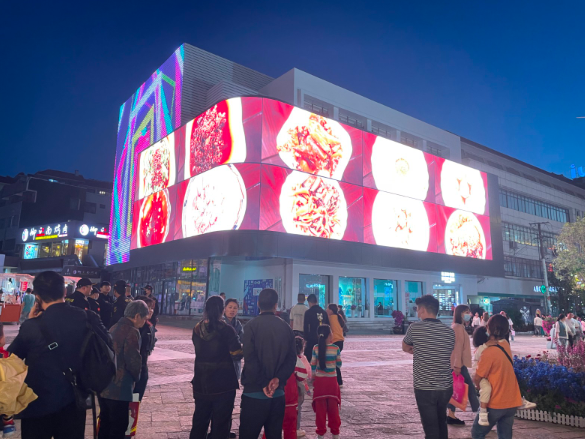Guiyang pivots to become regional consumption hub

Customers pass the time in Shizi Street, an important business area in Guiyang's Huaxi district. [Photo/ddcpc website]
Guiyang city – capital of Southwest China's Guizhou province – recently reported total retail sales of consumer goods of 63.03 billion yuan ($9.32 billion) during the first quarter, a year-on-year rise of 5.8 percent on the previous corresponding period.
The rebound is widely seen as being a product of Guiyang's dynamic efforts made in promoting the revitalization of its commerce and trade. In so doing, it has stimulated spending and developed a regional consumption hub through both online and on-site trading.
So far, Guiyang has established and put seven middle and premium shopping malls. It has also upgraded three pedestrian streets, and developed commerce and trade along Renmin Avenue and Shubo Avenue.
What's more, it has established five core business areas and boosted the construction of demonstration blocks for pedestrian streets and its nighttime economy.
Currently, all the main venues and streets in Guiyang's downtown area are covered with free Wi-Fi. Some 11 districts and counties are covered with 5G, with an outbound bandwidth of 9,130 gigabits per second. Meanwhile, major logistics companies have established regional distribution centers in Guiyang, helping to boost online consumption.
In the first three months of the year, the city's online volume of retail sales achieved through public network was 5.74 billion yuan, a year-on-year leap of 100.5 percent.
Moving forwards, plans are for Guiyang to promote the e-commerce transformation of its traditional commerce and trading companies and create three or so demonstration blocks for smart business.
At the same time, plans are for Guiyang to develop new non-contact consumption models such as e-commerce – to boost spending on cars, refined oil and household appliances – as well as boost sales in health, culture, sports and the nighttime economy, among other things.
Presented by China Daily.
黔ICP备05001922号-3
